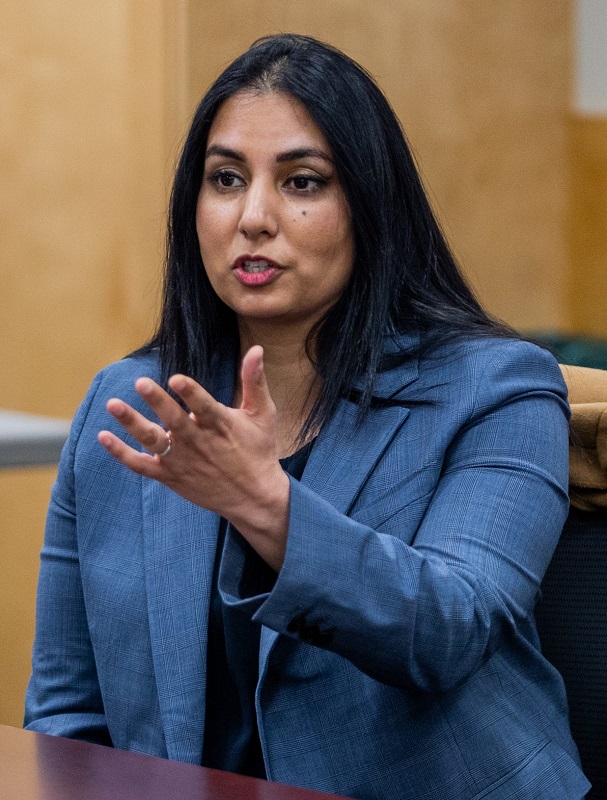PEOPLE seeking legal assistance will have more choices with changes to how lawyers, notaries and other legal professionals are regulated.
The Province says navigating the legal system without the guidance of a legal professional can be overwhelming and many people choose to try to solve their own legal problems because they can’t afford help. The proposed Legal Professions Act will bring legal professions under a new single regulatory body and, depending on the legal matter, offers people the choice of hiring a lawyer, a notary public or a new designation called a regulated paralegal to assist them.
“When you need legal assistance, you shouldn’t have to choose between straining your finances or navigating a complicated legal matter on your own,” said Niki Sharma, Attorney General. “We’re giving more people more options and helping level the playing field for people trying to resolve their legal issues.”
The legislation includes enhancements for Indigenous Peoples as legal professionals and as clients. Consistent with government’s obligations under the Declaration on the Rights of Indigenous Peoples Act, key parts of the legislation have been developed collaboratively with Indigenous partners. There will be a minimum requirement for Indigenous membership on the regulator’s board, as well as the creation of an Indigenous council to work in collaboration with the board and staff to advance efforts toward reconciliation. The regulator will be empowered to resolve concerns based on restorative processes, influenced by Indigenous practices.
“The existing legal regulation has failed Indigenous people for far too long,” said Kory Wilson, Chair, BC First Nations Justice Council (BCFNJC). “From excluding First Nations people from becoming lawyers to failing to adequately investigate complaints from Indigenous clients of their lawyers. To adequately undertake its mandate of protecting the public, specifically Indigenous clients, the legal regulator must increase the number of Indigenous lawyers and address the gross overrepresentation of Indigenous people in the criminal justice and child apprehension system. BCFNJC believes that the Indigenous inclusion contained within the new legislation is a positive step forward but there is still a long way to go for the Province.”
Under the Legal Professions Act, a new category of legal service provider called a regulated paralegal will handle certain legal matters independently. Previously, paralegals could only provide legal services under the supervision of a lawyer. A working group will provide recommendations about what legal services the new profession should provide. Lisa Trabucco, a research professor with a focus on legal paraprofessionals, has been appointed as chair of the working group.
“I am excited to be joining the working group at this pivotal point in the modernization of legal services delivery in British Columbia,” said Trabucco, assistant dean, Professional Programs and Community Services, Windsor Law. “Paralegals already perform a variety of legal work and my research reveals that regulated paralegals are capable providers of legal services. This new legislation will give regulated paralegals independence, so they can help more people with their legal problems and make justice more accessible.”
The scope of notaries public will also be expanded to cover more day-to-day legal matters, such as helping clients with the probate process or preparing wills that have a life estate component.
Under a single regulator, the three professions will maintain their independence from government. The regulator will have a mandate to govern the professions in public interest based on several guiding principles, including improving access to legal services. An independent tribunal will also be established to impartially hear disciplinary cases involving legal professionals.
The Legal Professions Act builds on government’s work to expand opportunities for people who need help with legal problems in B.C. This year, government has also expanded legal aid for people experiencing family violence, launched a new service to help people whose intimate images have been shared without consent and opened five new Indigenous justice centres.













